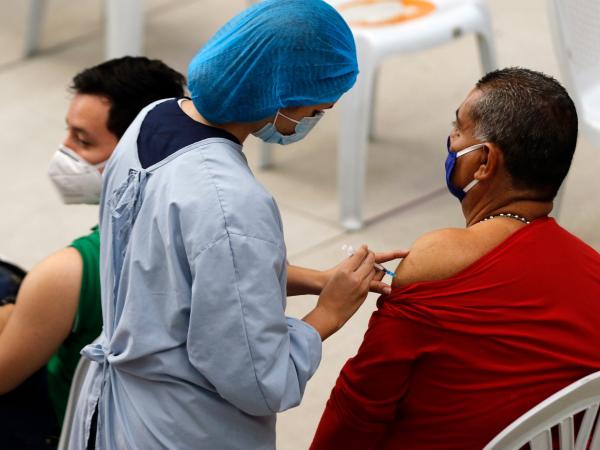Page Seven / La Paz
In less than 10 days, the Movement to Socialism (MAS) registered threats against the highest intercultural leader, silletazos and blows in a congress, and even a stabbing. In the blue party they regret what happened and express concern.
The most recent incident occurred over the weekend, after the MAS Bermejo ordinary congress was held in the fourth intermission for 15 days, due to the disagreement of two sides (intercultural and peasant).
The point of the controversy was that one of the parties wished to contravene the provision that elected or alternate authorities cannot compete to be party executives. After the suspension of that activity, the executive Lorenzo Mamani was stabbed.
The second event dates from October 22, when Angélica Ponce, executive of the Confederation of Women of Intercultural Communities of Bolivia, denounced that she was threatened to leave the leadership of that sector.
“Tired executives turned upside down during the coup, they left me alone, I fought and they recognized the bases and ratified me. Why aren’t they going to respect that? ”Ponce said.
The third event happened on October 16, when the MAS congress to elect a new board in Tarija ended with blows and silletazos. It all started when one of the sectors denounced that the call was illegal.
In contact with Página Siete, José Huanca, head of the MAS bank in Tarija, regretted the incidents and expressed his concern. “We regret these situations and, well, we are also very concerned about everything that is happening within at least our militancy,” he said.
He announced that they will seek to speak with the corresponding authorities, such as the national leadership of the MAS, to warn them of these situations, which are no longer isolated. In addition, he indicated they will talk with the leaders and that they will respect the organic.
“What we will always do is respect what is organic. What belongs to the organizations, we are going to respect. But, nevertheless, according to what we have been able to perceive, what we have been able to inform and know partially motivates us and forces us as militants also to speak with the leaders of the higher instances ”, he assured.
Pedro Portugal, historian and political analyst, explained that these incidents are expressions of the “organic and institutional decomposition” suffered by the MAS.
He recalled that before the MAS’s form of organization was praised, because it was said that it was not a traditional political organization, but rather rejected the institutionalization and structural forms of the traditional party.
“So, all that is happening, now, bill. The MAS was never structurally organized. It was a fairly skilled elite with foreign contacts who knew how to skillfully articulate persistent organizations, social movements and pre-existing problems in our country, which always had expression in unions, in union groups, in grassroots organizations and who knew how to articulate them. without creating a doctrinal, disciplined or organic structure in this regard, “he said.
Portugal stated that this lasted while the MAS was in power, its situation was one of ascent and it was empowered by the State apparatus.
“Now the MAS is ending its cycle. In other words, it no longer has the attractiveness of ideas that it had before and the control of the State apparatus has shown its limits, since it has not carried out radical transformations, and neither can it cover the multitude of demands that come from its militants regarding the satisfaction of their own expectations or in terms of entering the public service ”, he stated.
Portugal indicated that the political apparatus “begins to deteriorate” and the silletazos, the arguments, the contradictions or the stabbing “are expressions of this organic and institutional decomposition that this party suffers.”








